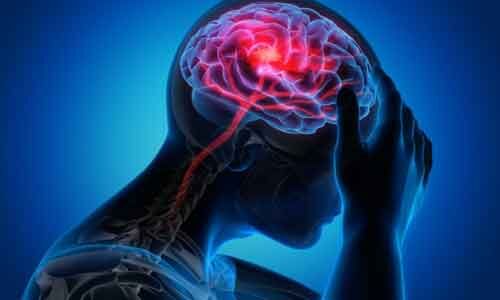- Home
- Medical news & Guidelines
- Anesthesiology
- Cardiology and CTVS
- Critical Care
- Dentistry
- Dermatology
- Diabetes and Endocrinology
- ENT
- Gastroenterology
- Medicine
- Nephrology
- Neurology
- Obstretics-Gynaecology
- Oncology
- Ophthalmology
- Orthopaedics
- Pediatrics-Neonatology
- Psychiatry
- Pulmonology
- Radiology
- Surgery
- Urology
- Laboratory Medicine
- Diet
- Nursing
- Paramedical
- Physiotherapy
- Health news
- Fact Check
- Bone Health Fact Check
- Brain Health Fact Check
- Cancer Related Fact Check
- Child Care Fact Check
- Dental and oral health fact check
- Diabetes and metabolic health fact check
- Diet and Nutrition Fact Check
- Eye and ENT Care Fact Check
- Fitness fact check
- Gut health fact check
- Heart health fact check
- Kidney health fact check
- Medical education fact check
- Men's health fact check
- Respiratory fact check
- Skin and hair care fact check
- Vaccine and Immunization fact check
- Women's health fact check
- AYUSH
- State News
- Andaman and Nicobar Islands
- Andhra Pradesh
- Arunachal Pradesh
- Assam
- Bihar
- Chandigarh
- Chattisgarh
- Dadra and Nagar Haveli
- Daman and Diu
- Delhi
- Goa
- Gujarat
- Haryana
- Himachal Pradesh
- Jammu & Kashmir
- Jharkhand
- Karnataka
- Kerala
- Ladakh
- Lakshadweep
- Madhya Pradesh
- Maharashtra
- Manipur
- Meghalaya
- Mizoram
- Nagaland
- Odisha
- Puducherry
- Punjab
- Rajasthan
- Sikkim
- Tamil Nadu
- Telangana
- Tripura
- Uttar Pradesh
- Uttrakhand
- West Bengal
- Medical Education
- Industry
TMS has potential to treat stroke, dementia and migraine

MAYWOOD- Transcranial magnetic stimulation (TMS) is a method of Non-Invasive Brain Stimulation that is based on electro-physical principles discovered by Michael Faraday. It has shown significant efficacy in treating major depressive and obsessive-compulsive disorders.
A newly published literature review by Antonio H. Iglesias, MD, a Loyola Medicine neurologist and assistant professor at the Loyola University Chicago Stritch School of Medicine highlights the compelling scientific and clinical data supporting further studies into the use of TMS to treat a broader range of common neurological conditions, including stroke, acute migraines and dementia.
A TMS device is made of one or two copper coils, positioned on an external, targeted area of a patient's scalp, which produces brief, magnetic pulses to an estimated depth of approximately 2 to 2.5 centimetres. The magnetic field triggers changes in neuronal activity and communication, which can alter unwanted activity within the brain.
"TMS can work as a stimulant or an inhibitor of cerebral activity, or both," says Dr Iglesias. In addition, different sized coils and varying magnetic impulses can impact outcomes, depending on a patient's neuroplasticity--the capacity for neurons and the nerve cells to change and compensate for injury and disease.
"Most importantly, TMS is well-tolerated by most patients with few side effects," says Dr Iglesias.
Transcranial magnetic stimulation is approved by the Food and Drug Administration (FDA) to treat major depression and obsessive-compulsive disorder (OCD). According to the article, appearing in the February 4, 2020 journal Current Neurology and Neuroscience Reports, there are 1,641 studies underway utilizing TMS to treat a broad array of other neurological disorders, including more than 60 trials alone studying the effects of TMS to diminish or reverse the effects of early dementia. The most promising results are in the treatment of acute migraines and primary progressive aphasia (PPA), and the effects of stroke.
"TMS has now opened the field of neurology in multiple areas," says Dr Iglesias. "And, there are many variables that could be studied and arranged to improve brain functionality and network connections."
Loyola Medicine is already successfully utilizing TMS in the treatment of depression and OCD, and "it is my hope that we can begin to explore utilizing this treatment for dementia, and specifically the early effects of PPA, which can rapidly diminish language and other cognitive skills," says Dr Iglesias.
for further references log on to:
Dr Kamal Kant Kohli-MBBS, DTCD- a chest specialist with more than 30 years of practice and a flair for writing clinical articles, Dr Kamal Kant Kohli joined Medical Dialogues as a Chief Editor of Medical News. Besides writing articles, as an editor, he proofreads and verifies all the medical content published on Medical Dialogues including those coming from journals, studies,medical conferences,guidelines etc. Email: drkohli@medicaldialogues.in. Contact no. 011-43720751


